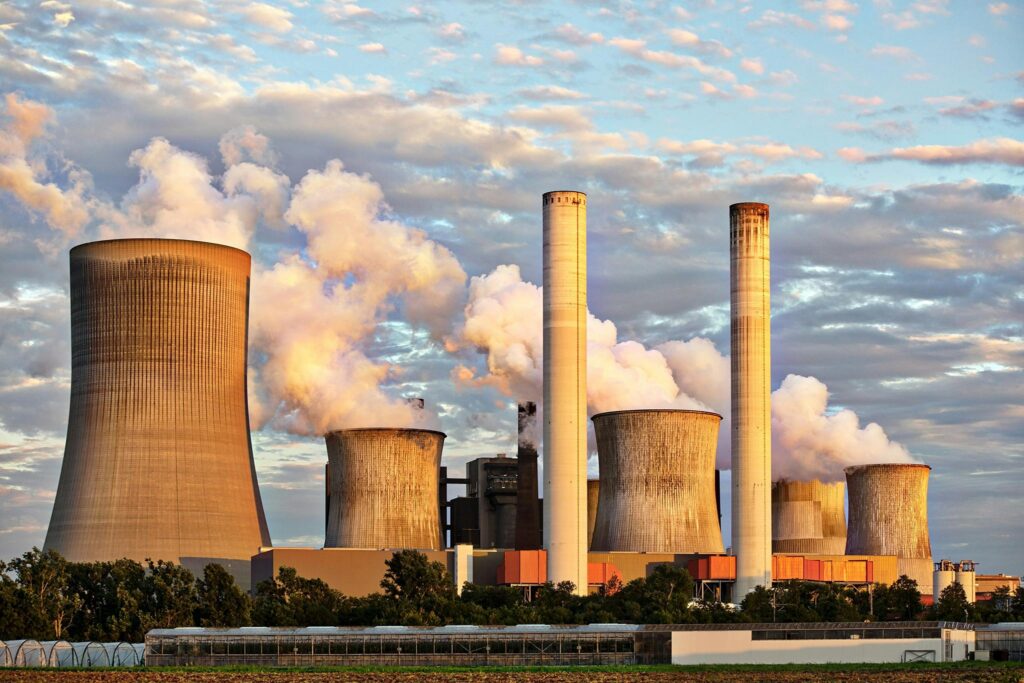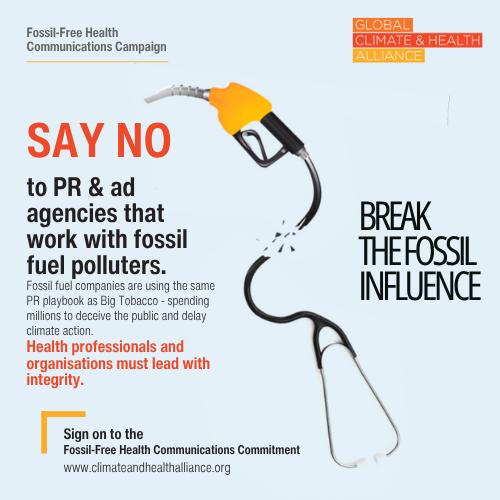
“We must fight the coordinated disinformation campaigns impeding global progress on climate change.”
— António Guterres, UN Secretary-General
By Shweta Narayan
For the first time, ‘information integrity’ is on the official COP agenda, a priority championed by the UN Secretary General and the President of Brazil. It recognises that disinformation is not only a side issue but is destroying global cooperation, and having a devastating impact on human health.
Across the world, fossil fuel companies are using disinformation to protect their image, delay regulation, and preserve their social licence to operate. For doctors, nurses, and health advocates, that isn’t just misleading – it’s lethal. Here’s why the health community is standing up to the fossil fuel industry’s disinformation machine, and how the movement is gathering momentum.
Disinformation costs lives
Every year of delay in cutting fossil fuel use translates directly into illness and death, from polluted air, heat-related injuries, food insecurity, and displacement. When corporations market gas as a “clean transition fuel,” or oversell carbon capture as a climate solution, they aren’t just distorting facts, they are delaying lifesaving action. The result: more asthma in children, more cancer, more heart disease, more heat deaths, more poisoned lands.
Health professionals have seen this playbook before
From tobacco to asbestos to sugary drinks, industries have long manipulated science to protect profits. The fossil fuel industry has refined this art, funding front groups, co-opting experts, and using PR firms to seed doubt and confusion. Health professionals recognize these tactics instantly. We’ve seen what happens when lies are left unchallenged.
Credibility is non-negotiable
Health organisations are some of the most trusted voices in the world. That trust must not be compromised by association with industries, or their PR and advertising agencies, that profit from deception. Around the world, health bodies are cutting ties with fossil fuel-linked PR firms through initiatives like Break the Fossil Influence, and in the run up to COP30 we’re seeing a wave of health organisations signing up to the commitment. It is sending a clear message: the health community will not be a vehicle for disinformation.
Truth is a form of prevention
Just as vaccination protects against disease, accurate information protects against manipulation. When integrity breaks down, societies lose their ability to act on evidence. Information integrity – i.e. transparency, accuracy, and accountability in public communication, is therefore a public health necessity. Without it, misinformation spreads faster than solutions.
Defending truth defends democracy
Disinformation doesn’t just distort science, it corrodes decision making. It undermines citizens’ right to make informed decisions and erodes public trust in institutions. By standing up for evidence-based communication, the health community is also standing up for accountability, human rights, and the rule of law, the foundations of healthy societies.
A public health imperative
Disinformation isn’t an abstract communications issue; it’s a determinant of health. It fuels delay, division, and denial, and with every passing year, its human toll grows. At COP30 in Belém, where the credibility of global commitments will again be tested, health professionals will be clear: truth saves lives. Governments and institutions must:
- Enforce transparency and conflict-of-interest rules for corporate communications;
- Protect the information space from covert influence operations;
- Uphold access to accurate, science-based information as part of the right to health.
The health community has drawn the line and will be making a stand at COP30. It’s time for others to do the same.


